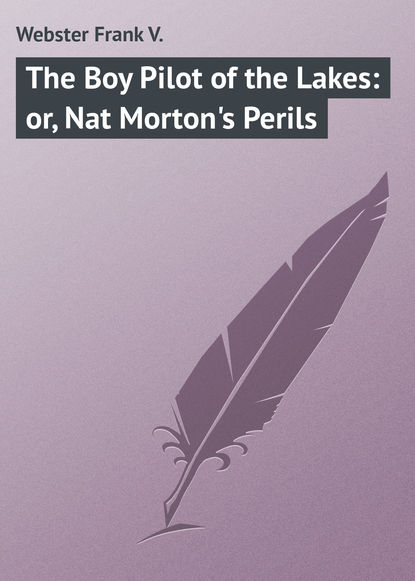 Полная версия
Полная версияThe Boy Pilot of the Lakes: or, Nat Morton's Perils
"Now that is over, we have another matter against you," went on Mr. Weatherby. "I presume you know what it is, Bumstead."
"Yes," said the other in a low voice.
"Nat, go ashore and call an officer," said the pilot.
"Don't do that!" begged the mate. "I'll confess everything, and I'll pay the money back with interest."
"Then you admit that you kept the fifteen hundred dollars you were to deliver to Mr. Morton's son?"
"Yes. It was a great temptation, after I cashed the lumber certificates. I needed the money badly, and I kept it. I meant to pay it back, but I – I couldn't."
"And will you pay back the money on the note?"
"Every penny, with interest, if you don't have me arrested."
"What do you say, Nat?" asked Mr. Weatherby.
"I have no desire to see him arrested, though I think he tried to injure me in other ways than by keeping this money from me. But I forgive him," answered the boy.
"I think that is the best way," went on the pilot. "You have been punished almost enough, Bumstead. I hope it will be a lesson to you."
"It will. Mr. Morton was kind to me, and I treated his son very wrong. I'm – I'm sorry," and the mate turned his face away, so they would not see him weeping.
Nat was glad to get away from the sad scene. On his way out he passed Sam Shaw, but that youth had nothing to say, and he turned aside.
"I feel that I owe you an apology," said Captain Carter to Captain Turton. "I'll discharge that rascal of a mate and his red-headed nephew, too."
About two weeks later, through the efforts of Mr. Scanlon, the lawyer who took charge of the case for Nat, the entire sum appropriated by the mate, together with interest for two years, was recovered, and turned over to the young pilot, who also received his father's wallet, which he prized very much. Bumstead and Sam lost their places on the Liberty Bell, and at last accounts they were working as laborers aboard a grain barge, for the mate had to sell his shares in the Jessie Drew to pay Nat what was coming to the boy. Sam confessed his trick about the cigarettes, and Captain Marshall, when he heard about it, begged Nat's pardon in a letter.
"Well," said Mr. Weatherby to Nat one day, "since you have come into your inheritance, I suppose you'll give up learning to be a pilot?"
"Indeed, I shall not. I'm going to spend a couple of terms at school, and then I'm coming back with you again. I want to see my old friends, Mr. and Mrs. Miller, and do something for them, in return for their kindness to me. I'm going to be a pilot yet, and, I hope, a good one."
"There is no question but what you will, if you keep on as you have been going," returned Mr. Weatherby.
Nat used part of the money to better his education, and he gave a goodly sum to his kind friends, so that they were able to live in better circumstances. Then the young pilot resumed his work aboard a big passenger steamer, Mr. Weatherby coaching him, until the aged man said Nat knew as much as he did, if not more.
To-day, one of the best pilots on the Great Lakes is Nat Morton, who once was a wharf-rat about the Chicago water front. But he won his place through pluck and after not a few perils.
THE END
